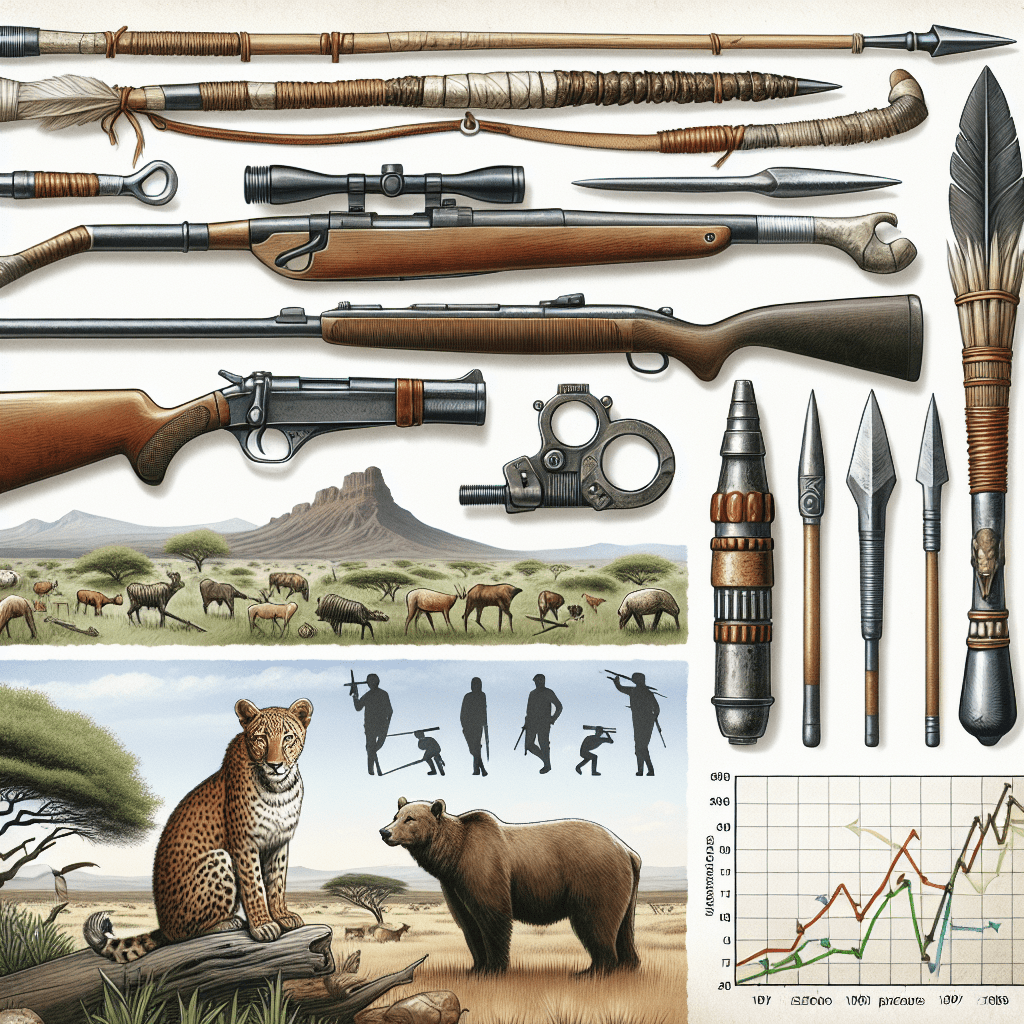The Thrill of The Hunt: An Exploration of Hunting Practices, Regulations, and Debates Through the Ages
Hunting has been an intrinsic part of human history and culture, serving as a means of sustenance, a sport, and a complex issue that intertwines with conservation and ethical debates. This exhaustive exploration looks at various facets of hunting, from traditional methods to modern regulations, and the contentious discussion surrounding it.
Historical Significance of Hunting Through the Centuries
Hunting has been practiced by humans for millennia, evolving from a necessary survival activity to a regulated sport with various objectives. Traditionally, hunting was vital for the acquisition of food, clothing, shelter materials, and tools. Historical records show that as far back as the Paleolithic age, humans have engaged in hunting wild animals – techniques and tools evolving alongside human societies. From simple spears and bows to firearms and sophisticated traps, the arsenal used for hunting has transformed drastically.
Cultural Impact and Traditional Forms Worldwide
Hunt has not only provided for physical necessities but also held a significant place in the cultural tapestry of many societies. It often features in rituals, folklore, and social practices. Indigenous cultures around the world have maintained a deep respect for the animals they hunt, viewing them as integral components of their communities’ survival and cosmovisions. From the Aboriginals of Australia to the Native Americans, hunting practices have often symbolized bravery and the transition from youth to adulthood.
Conservation Efforts and the Emergence of Regulations
With industrialization and habitat destruction came declining wildlife populations, thereby necessitating stringent hunting regulations. Governments and international bodies implemented seasons, bag limits, licensing requirements, and protective measures for endangered species to balance animal conservation with hunter access. Notable organizations such as the International Union for Conservation of Nature (IUCN) emerged to regulate hunting practices worldwide.
Modern Hunting Technologies and Techniques
Today’s hunters have access to an array of modern technologies that have significantly changed how hunting is conducted. Innovations like compound bows, motion-activated game cameras, night vision scopes, GPS tracking devices, and even drones have altered the hunter-prey dynamic. While these advancements may enhance a hunter’s success rate, they have also raised ethical concerns regarding fair chase principles – notions that hold hunters should maintain certain standards of sportsmanship.
Ethical Considerations and Animal Rights Advocacy
As societies became more urbanized and less reliant on hunting for survival, animal rights movements grew in prominence. Advocates argue that killing animals for sport is morally unjustifiable when alternative food sources are readily available; others counterbalance this by citing ecological balance or controlling overpopulated species. Regardless of your standpoint on hunting ethics, it continues to provoke heated debates among conservationists, animal rights activists, hunters, and policy-makers.
Economic Aspect of Hunting Tourism
Hunting tourism is an often-overlooked economic engine that contributes significantly to rural economies where it’s practiced. In certain regions like Africa’s safari zones or North America’s remote areas, guided hunts often include lodging, permit fees, employment for guides and support staff – adding substantial revenue that sometimes also funds wildlife conservation efforts. The revenue generated from trophy hunts is particularly contentious — some cases show funds going towards habitat protection while critics argue against killing protected species regardless of potential benefits.
Notes
Image description: An illustration displaying an array of hunting equipment from various historical periods ranging from primitive spears to modern-day rifles juxtaposed against a backdrop showing diverse environments known for hunting activities (i.e., African savannahs, North American woodlands). A chart in the lower corner shows fluctuating wildlife population trends next to significant regulation enactments years.
